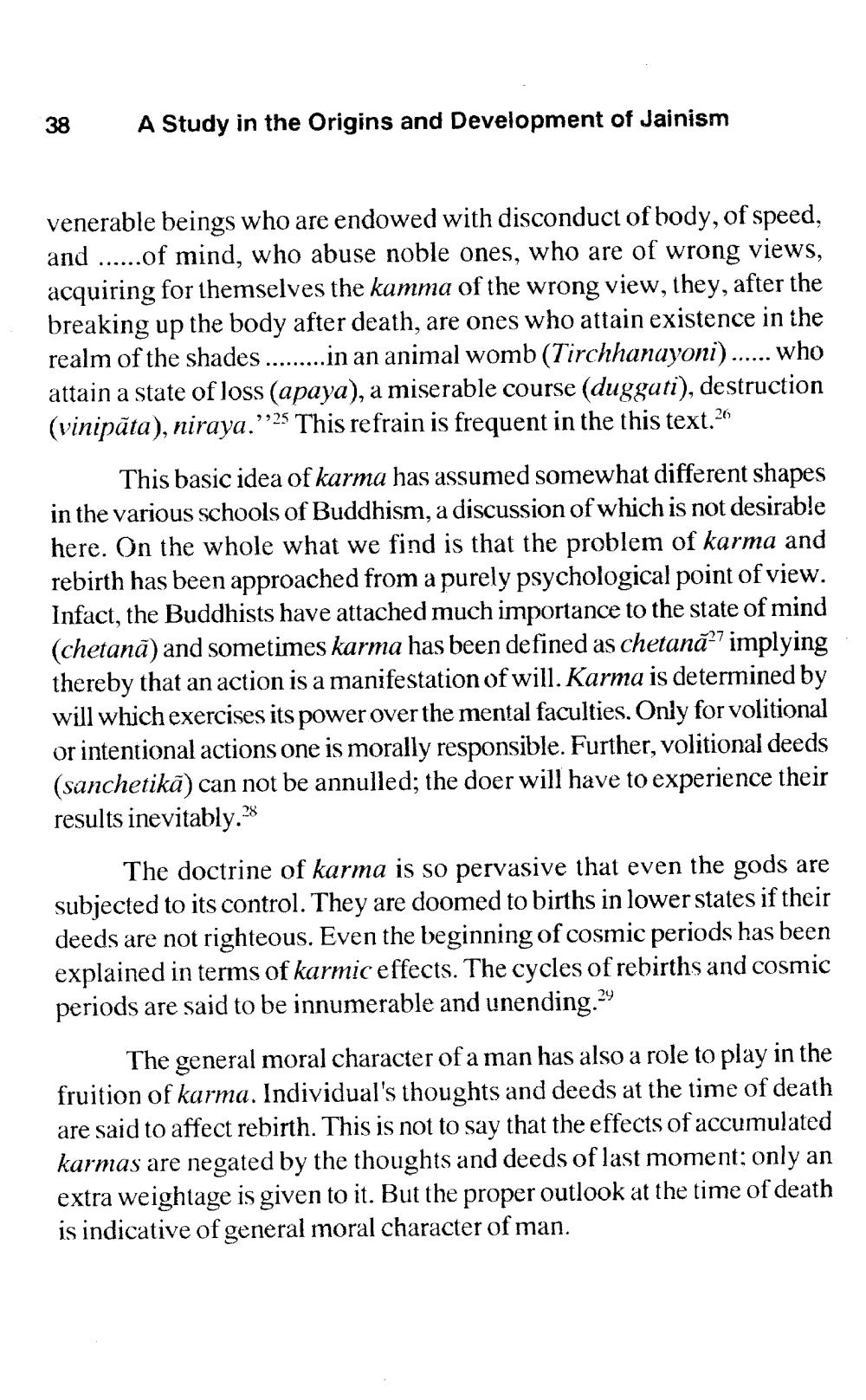________________
38
A Study in the Origins and Development of Jainism
venerable beings who are endowed with disconduct of body, of speed, and ......of mind, who abuse noble ones, who are of wrong views, acquiring for themselves the kamma of the wrong view, they, after the breaking up the body after death, are ones who attain existence in the realm of the shades ......... in an animal womb (Tirchhanayoni).... who attain a state of loss (apaya), a miserable course (duggati), destruction (vinipāta), niraya.”:25 This refrain is frequent in the this text.26
This basic idea of karma has assumed somewhat different shapes in the various schools of Buddhism, a discussion of which is not desirable here. On the whole what we find is that the problem of karma and rebirth has been approached from a purely psychological point of view. Infact, the Buddhists have attached much importance to the state of mind (chetană) and sometimes karma has been defined as chetană' implying thereby that an action is a manifestation of will. Karma is determined by will which exercises its power over the mental faculties. Only for volitional or intentional actions one is morally responsible. Further, volitional deeds (sanchetikā) can not be annulled; the doer will have to experience their results inevitably.28
The doctrine of karma is so pervasive that even the gods are subjected to its control. They are doomed to births in lower states if their deeds are not righteous. Even the beginning of cosmic periods has been explained in terms of karmic effects. The cycles of rebirths and cosmic periods are said to be innumerable and unending. 29
The general moral character of a man has also a role to play in the fruition of karma. Individual's thoughts and deeds at the time of death are said to affect rebirth. This is not to say that the effects of accumulated karmas are negated by the thoughts and deeds of last moment; only an extra weightage is given to it. But the proper outlook at the time of death is indicative of general moral character of man.




